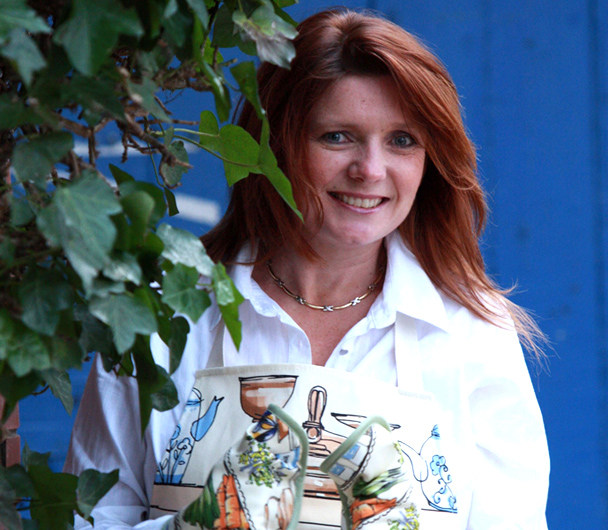Rachel Gaffney wants to be the Martha Stewart of Irish cuisine. Born in County Cork, the daughter of a fine Irish cook and baker, she was astonished to discover, on moving to the United States in 1996, that the phrase “Irish cuisine” tended to produce groans, indications of nausea, or leg-slapping guffaws. Humiliation summoned Gaffney’s mettle, just as one can imagine that Stewart’s resolve was forged, in part, by growing up Polish-American in an era of ethnic jokes aimed full-bore at her heritage.
“Lovely, well-intended people say unimaginable things,” Gaffney reflects. After her husband’s job with Lloyd’s of London brought the family to Dallas, people would greet her with comments like, “You must be so happy to be away from all that corned beef and cabbage,” or, “Aren’t you glad to have something besides potatoes to feed your children for dinner?”
“They didn’t know any better,” says Gaffney, 42. “They simply had no idea that when you ridicule a culture’s cooking, you are ridiculing somebody’s mother.” Like her mother, Gaffney is a fine Irish baker and cook. She could not, she resolved, raise her two sons in a place where “Irish” meant nothing but green beer, boiled bacon, and cabbage. She could, she reasoned—with characteristic stampeding-Longhorn energy—change the way Americans think about Irish culture and food.
Irish shortbread was her first shot fired. Whenever home-baked treats were sought to benefit a good cause—bake sales, birthday parties—Gaffney used “Mum’s recipe” to turn out extraordinarily flaky shortbread cookies with an understated sweetness. The deep gold color and buttery soul of her shortbread became the talk of le tout North Dallas, and eventually Rutherford’s, an elegant interior design store that served an afternoon tea for clients, asked Gaffney to supply the shortbread. Then the store asked to sell her shortbread. Then upscale catalogs began inquiring about the cookies. Gaffney founded a baking company. Then Dallas’ renowned Central Market chain decided to stock her shortbread and asked Gaffney to give baking demonstrations in its stores.
Gaffney was not about to limit herself to becoming the Irish Mrs. Fields. To her teaching demonstrations she added savory recipes, lessons in preserving, tastings of Irish farmstead cheeses. She championed Texas beef—“It’s as pure as the Irish beef,” she exclaimed to startled audiences.
By 2001, among certain circles, “Irish cuisine” drew fewer chortles than it did respect for Gaffney’s recipes for seafood bisques and bakes as well as her meaty stews and puddings, creamy casseroles, and even the trembling flans that she taught at Central Market and other local gourmet stores. There was even, she reports, a surprising amount of interest in the various dessert dishes that the Irish fashion from carrageenan, a seaweed found off the country’s western coast. As Gaffney’s renown grew, her business expanded to dinner parties and weddings, bridal showers and engagement parties. In time she launched Rachel Gaffney’s Real Ireland online, along with a blog and videos.
Gaffney’s style was a welcome contrast to the perfectly matched, minutely orchestrated affairs of the traditional Southern-entertaining mold. (“You’d walk in, and you couldn’t smell anything cooking,” she recalls. “Everything was too set and perfect to let you exhale. It was a performance, not a convergence that begged conviviality.”) Politicians, patricians, and pro football players wanted Gaffney’s cooking, her Waterford vases, fine Irish linen, mismatched china and sterling flatware, the leftover peanut butter and jam jars that she filled with bunches of herbs and, when in season, shamrocks. “Believe it or not, they grow very well in Texas,” she says. “I think of shamrocks as local decor.”
You don’t need fancy food and flatware, Gaffney maintains, “you need what you have and you make the most of it.” You don’t need days of planning, “you need to make a few things the day before and finish it up while people are standing around drinking.” You don’t even need to be a great cook. “Anybody can warm up a loaf of bread in a slow oven with some garlic and rosemary butter. When people catch a whiff of that sort of wonderful coming from the kitchen, they feel at home.”



 Pinterest
Pinterest


